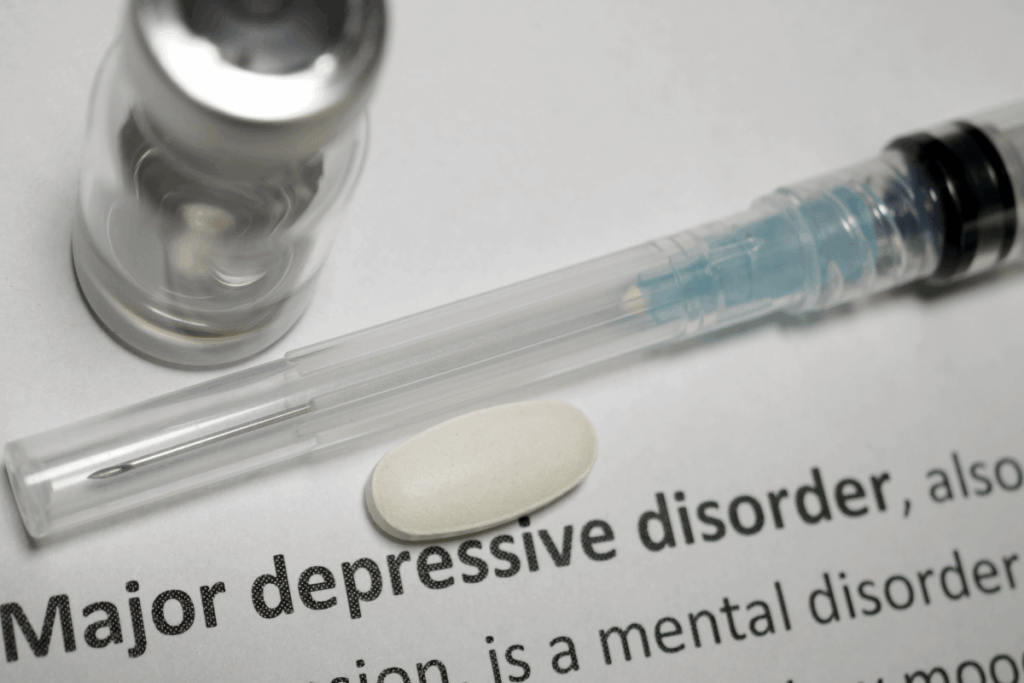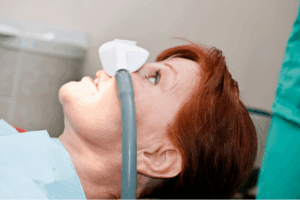
Major depressive disorder (MDD) is the most prevalent psychiatric disorder, affecting 22 million adults in the United States. Depression is often treated uniformly, yet MDD is highly complex, affecting various brain regions and presenting in diverse symptom patterns, leading to widely different treatment responses. Although several antidepressant medications are available, two out of three individuals with MDD continue to experience persistent symptoms that impair their functioning and prevent full remission.
CAPLYTA (lumateperone) is a prescription drug that is developed to treat various mental disorders and has emerged as a promising new therapy for MDD in adults. The U.S. Food and Drug Administration (FDA) granted approval to CAPLYTA as an adjunctive therapy to antidepressants for adults with MDD. This is the first approval granted by the company Johnson and Johnson and comes as a new way of treatment to patients who are not completely cured by the available therapies.
CAPLYTA® can be initiated easily without dose titration. It has demonstrated a safety profile comparable to placebo, particularly regarding weight gain and metabolic changes, which are major concerns and common reasons for discontinuing treatment. It is the only FDA-approved therapy for both bipolar I and bipolar II depression in adults, whether used as an adjunctive or stand-alone treatment. It is also used in the treatment of schizophrenia in adults.
Dr. Roger S. McIntyre, Professor of Psychiatry and Pharmacology at the University of Toronto, claims that depression is not the same in all people, and therefore, diverse and tolerable treatment options are essential. He described how patients with persistent symptoms despite antidepressants can respond to CAPLYTA quickly and achieve remission, which is the goal of treatment.
The FDA approval was supported by two large Phase 3 randomized, double-blind, placebo-controlled trials, Study 501 and Study 502. Both studies were able to reach their primary and secondary endpoints and reveal statistically significant improvement in depressive symptoms over an antidepressant plus placebo, measured by the Montgomery-Asberg Depression Rating Scale (MADRS) and Clinical Global Impression-Severity (CGI-S) scores. CAPLYTA 4.61 points with an effect size of 0.61 in Study 501 and 4.5 points with an effect size of 0.56 in Study 502 both yielded a reduction in MADRS scores of six weeks. Improvement was observed as early as one week in Study 501 and within two weeks in Study 502.
CAPLYTA 1 demonstrated a safety profile that was similar to previous results in schizophrenia and bipolar depression. None of the new safety concerns were detected. Placebos were equal to weight and metabolic parameters like lipid and glucose levels. The frequently occurring side effects included nausea, dry mouth, fatigue, dizziness, sleepiness, and diarrhea. The tolerability of the medication was confirmed by long-term findings of the 503 open-label extension study. In 26 weeks, 80% of patients were responsive to treatment, and 65% remitted or attained remission (MADRS ≤10).
CAPLYTA exhibits high serotonin 5-HT2A receptor occupancy and moderate dopamine D2 receptor occupancy. The dose of 42 mg, once daily, is recommended without the need for titration. According to Bill Martin, Ph.D., Global Therapeutic Area Head of Neuroscience at Johnson & Johnson Innovative Medicine, CAPLYTA® has the potential to redefine treatment expectations for a range of mental health conditions. He emphasized that the company’s seven decades of dedication to neuroscience have been instrumental in driving innovation and offering hope to patients striving for lasting wellness and remission.
Reference: Johnson & Johnson. FDA approval of CAPLYTA® (lumateperone) has the potential to reset treatment expectations, offering hope for remission in adults with major depressive disorder. Published Nov 06, 2025. Accessed Nov 12, 2025. FDA approval of CAPLYTA® (lumateperone) has the potential to reset treatment expectations, offering hope for remission in adults with major depressive disorder












